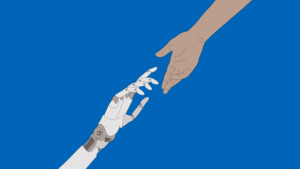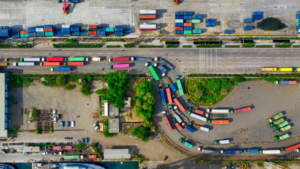
Our impact on digital government services in 2024
2024 has been a year of change. The United Kingdom welcomed a new government, with the Labour administration highlighting the important role of technology to enhance critical services and improve the sharing of information across the public sector.
In a sense, for Zaizi, this is business as usual. Over the last 12 months, we’ve continued to deliver impactful work across government and the public sector, particularly in border and national security. Our multidisciplinary digital teams tackle complex challenges and design, build and sustain services that bring about meaningful change.
Our mission at Zaizi is to make the UK the best and safest place to live and work. And we’ve set an ambitious goal: to positively impact 70 million citizens across the UK by 2030. To realise that, we’ve been thinking about how we measure the impact our work brings. Is it by changing cumbersome legacy systems into new digital products that win the approval of users? Is it by delivering and improving the behind-the-scenes processes that keep the people of the United Kingdom safe and prosperous? It is by conducting research that helps us and our clients really understand the nature of the problem – and the route to solve it?
In truth, it’s a bit of all of these things. By focusing on the outcomes of our work, we know we’re making a difference. In that spirit, we thought we’d wind up the year with a snapshot of just some of the work we’ve done in 2024 to deliver a lasting impact.
Keeping the UK safe and secure
Improving border processes: We’re supporting Border Force and the Home Office to create safe, secure and frictionless digital borders. Our work has helped Border Force standardise workflows, digitise processes, allow officers to scan and share data seamlessly and provide real-time reporting, dashboards and reporting. Our user-centred approach has received positive feedback from frontline officers.
Enhancing inspection with AI: We have also explored the potential of AI and machine learning techniques in a variety of border security challenges. In just 12 weeks, we showed how AI could add significant value to an already-effective operational environment and drive further efficiencies. In a recent webinar with Public Technology, Border Force and Zaizi spoke about this recent project.
Strengthening cyber security: Working in partnership with a government agency, we conducted research around how the general public and other audience groups consume information about cyber security. We’ve also continued to help this secure organisation maintain and improve its website, provide critical security resources to businesses and the public, and develop tools to promote cybersecurity education amongst young people.
Enabling secure data sharing We’re continuing to work with several other government organisations in secure environments, exploring how the implementation of cross-domain workflows can ensure that sensitive data is kept safe and secure, while making it available for legitimate and necessary use.
Tackling critical safety and security challenges We completed a number of commissions for various government organisations through the Accelerated Capability Environment (ACE) framework. They include, defining requirements for a digital solution providing accommodation for those out on bail; harnessing data to combat misinformation and protect rights around freedom of religion and belief; and the rollout of a programme that will improve the experience of victims of the most serious crimes, with accessibility at its core.
Watch webinar: A civil servant’s guide to getting AI projects off the ground
Positively impact the lives of citizens
Strengthening record-keeping infrastructure: Following our joint award nomination with the National Archives (TNA) earlier in the year, we’ve continued to build on our partnership with the organisation. The projects we’re working on include helping TNA make better use of its data, developing a secure and searchable interface for records, and tackling some of its legacy systems.
Planning roll-out of new guidance: Our content designers worked with Ministry of Housing, Communities and Local Government (MHCLG) stakeholders and policy teams to plan updates to public-facing guidance in advance of new legislation. We audited existing guidance, ran workshops with policy teams, scoped out the work with user stories and created a clear roadmap for change around significant policy milestones.
Rethinking an advisory service: We completed a technical alpha focused on improving the way the Leasehold Advisory Service (LEASE) issues advice to residential leaseholders and park home residents. Our work explored approaches such as live and automated chat, helping users self-serve where possible to reduce strain on advisor services and summarising their next steps in the form of a standardised, user-friendly record of advice.
Supporting public health: We undertook a project to help the Department of Health and Social Care (DHSC) understand how people use apps and digital technology to manage their health and daily lives, employing ethnographic research methods such as diary studies to build rich insights. We also created video reels to highlight the key themes in a digestible format for client stakeholders.
Automating and digitising legacy tech: We worked on several projects with MHCLG to streamline, automate and digitise labour-intensive processes, enabling better reporting and facilitating data-led decision-making. We then built internal capability through skills transfer, empowering the internal team to sustain and continue process improvements.
If you’d like to find out more about our work, please get in touch.
-

From ScanApp to Lego demos — What you need to know about Security & Policing 2025
-

Advancing DevOps practices with AI —lessons from AWS re:Invent
-

Paris AI summit: Navigating the AI landscape and how SMEs can help UK government
-

How Zaizi’s user-centred approach won the trust of border officers
-

Does the state need to be more like a start up?
-

How to kickstart AI projects in government — lessons from Border Force, HMRC and GIAA
